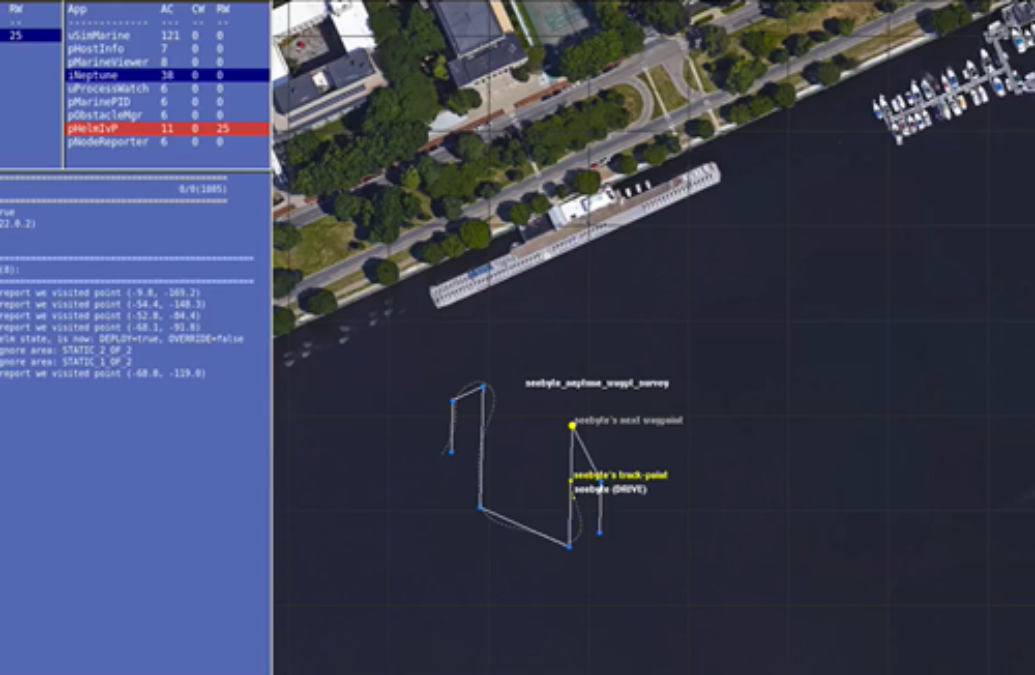
SeeByte and MIT successfully combine autonomy engines for best of breed “system of systems”
SeeByte and the Massachusetts Institute of Technology (MIT) have successfully combined SeeByte’s Neptune autonomy engine with MIT’s MOOS-IVP during the first trials to test a multi-architecture autonomy framework.
The two autonomies were run together cooperatively on a single asset to carry out a Mine Countermeasure (MCM) survey mission. To support the integration, a service-oriented, multi-autonomy interface has been developed.
Andrea Munafo, Engineering Manager at SeeByte said,
“The first phase of the project demonstrated how Neptune and MOOS-IvP can seamlessly work together leveraging each other’s strengths to maximise the mission performance. This is a great step towards a best of breed "system of systems'' approach, where new or updated autonomy services can be easily integrated together to improve UxV capabilities and give operators a broader range of capabilities.”
Michael Benjamin, Research Scientist at MIT commented,
“Hybrid autonomy systems present several powerful options for the end user to be opportunistic, nimble and able to field newly configured platforms for rapidly evolving mission challenges."
The prototype developed is agnostic to architecture so that it may be applied to a range of autonomy architecture pairs and it is not restricted to the two systems under test.
The next phase of the study awarded by the Office of Naval Research (ONR) will explore increasingly complex delegation strategies between Neptune and MOOS-IvP and consider multi-vehicle or multi-domain scenarios.
SeeByte’s Neptune and MIT’s MOOS-IvP offer extendable autonomy architectures and have been used in collaborative unmanned systems demonstrations worldwide.
Neptune and MOOS-IvP cooperatively carry out a synthetic MCM survey mission.
Photo: MIT
##
About MIT
The MIT community is driven by a shared purpose: to make a better world through education, research, and innovation. We are fun and quirky, elite but not elitist, inventive and artistic, obsessed with numbers, and welcoming to talented people regardless of where they come from.
About ONR
As an executive branch agency within the Department of Defense, the Office of Naval Research (ONR) supports the President's budget. ONR provides technical advice to the Chief of Naval Operations and the Secretary of the Navy.